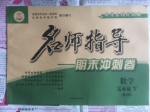听力理解
第一节 听下面5段对话,每段对话后有一个小题,从题中所给的A、B、C、三个选项中选出最佳选项.听完每段对话后,你都有10秒钟的时间来回答有关小题和阅读下一小题.每段对话仅读一遍.
1.What does the Woman mean?
[ ]
A.His brother should let them use the car.
B.The subway is fine with her.
C.A car wouldn't be any faster.
2.What does the man have to do now?
[ ]
A.Complete the research.
B.Put the material in order.
C.Finish typing the paper.
3.What do you know about the woman?
[ ]
A.Perhaps she is a doctor.
B.She was badly ill.
C.She didn't like to see the film.
4.What did Jane do after the party?
[ ]
A.She had to finish her homework.
B.She went to bed.
C.She went to the teachers' office.
5.How is the man leaving?
[ ]
A.By bus.
B.By air.
C.By train.
第二节 听下面5段对话或独白.每段对话或独白后有几个小题,从题中所给的A、B、C三个选项中选出最佳选项.听每段对话或独白前,你将有时间阅读各个小题,每小题5秒钟;听完后,各小题将给出5秒钟的作答时间.每段对话或独白读两遍.
听第6段材料,回答第6~8题.
6.What time is it now?
[ ]
A.It’s 10: 10 p. m.
B.It’s 10: 30 p. m.
C.It’s 9: 50 p. m.
7.How long will it take the woman to get lo the railway station?
[ ]
A.Less than fifteen minutes.
B.More than fifteen minutes.
C.Less than fifty minutes.
8.Why did the man invite the woman to his house?
[ ]
A.They had a tea party.
B.They had a dinner party.
C.They had a dancing party.
听第7段材料,回答第9~11题.
9.Why does the man want to have a word with the waitress?
[ ]
A.Because he has been kept waiting for a long time.
B.Because he wants to complain of the food.
C.Because he wants to pay the bill.
10.What do We learn about the restaurant?
[ ]
A.It must be a new one.
B.They don’t know how to serve the people.
C.They need more waiters.
11.If the waitress had known about his opinion, what would have happened?
[ ]
A.She would have served him right away.
B.She would have let him leave the restaurant.
C.She would have turned to her boss for help.
听第8段材料,回答第12~14题.
12.What did the boy mean by asking Mary“How did you do that”?
[ ]
A.How was Mary’s holiday?
B.Why did Mary go to Denver?
C.How would Mary be away from school for such a long time?
13.What can we infer about Washington's Birthday from the dialogue?
[ ]
A.It is perhaps a national holiday.
B.It Was fine that day and nobody wanted to stay in.
C.Maybe there was a national holiday near that day
14.How did Mary go to the mountain on Washington's Birthday?
[ ]
A.By bus.
B.By car.
C.By train.
听第9段材料,回答第15~17题.
15.What did the woman learn about the job from?
[ ]
A.The newspaper.
B.The radio.
C.The TV.
16.If the woman accepts the job, how long does she have to work every day?
[ ]
A.Three hours.
B.Four hours.
C.Five hours.
17.Which of the following statements is true about the job?
[ ]
A.You can get at least 300 pounds for the job per month.
B.You need to come to work before 10 o'clock every morning.
C.No experience and qualifications (条件) are required.
听第10段材料,回答第18~20题.
18.Why does Billy do a part-time job?
[ ]
A.Because he has to make a living by himself.
B.Because he has a strong will to put himself into the society.
C.Because he has to pay for his schooling.
19.How much can Bill get by delivering newspapers in a year?
[ ]
A.About 840 dollars.
B.About 700 dollars.
C.About the money for a new bicycle.
20.How often and when does Bill collect money from his customers?
[ ]
A.Once a day at night.
B.Once a month in the afternoon.
C.Once a month at night.
第三节听下面一段独白,每段独白读三遍,第一遍听短文大意,第二遍边听边写下所缺的词或者短语,第三遍检查.
Matthew Hobbs was sixteen years old. He had been at the same school for five years, and he (1) ________. He was lazy, he fought with other students, (2) ________, and he did not (3) ________ the rules of the school. His headmaster (4) ________ to make him work and become better, (5) ________, and the worse thing was that, as Matthew grew older, he had (6) ________ .
Then at last Matthew (7) ________. He tried to find a job in a company, and the (8) ________ wrote to the headmaster to find out what he could (9) ________ about Matthew. The headmaster wanted to be (10) ________ but he also did not want to be hard. So he wrote, “If you can get Matthew to work for you, you will be very lucky. ”

 名师指导期末冲刺卷系列答案
名师指导期末冲刺卷系列答案 开心蛙口算题卡系列答案
开心蛙口算题卡系列答案
 名师指导期末冲刺卷系列答案
名师指导期末冲刺卷系列答案 开心蛙口算题卡系列答案
开心蛙口算题卡系列答案